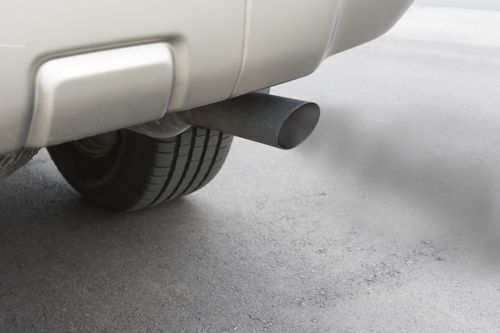Top Class Actions’s website and social media posts use affiliate links. If you make a purchase using such links, we may receive a commission, but it will not result in any additional charges to you. Please review our Affiliate Link Disclosure for more information.

Volkswagen does not share Credit Suisse’s worries, and has estimated far lower damages. The company has set aside about $7.3 billion to cover the potential monetary fallout from the emissions scandal.
While the company does admit that the costs may climb higher than their original estimate, it does not expect the costs to rise nearly as high as the Credit Suisse worst case scenario.
A Volkswagen spokesperson called the Credit Suisse estimate “pure speculation,” and referred to their calculations as “nonsense.”
While $87 billion was the high end of Credit Suisse’s estimate, their lowest estimate fell at about $25.7 billion, which is still about 3.5 times higher than what Volkswagen has set aside.
To put these numbers into perspective, if Credit Suisse’s estimate of $87 billion is accurate, that’s seven times Volkswagen’s net profit last year. This kind of cost would place the company under enormous financial strain.
The company has about $24.3 billion on hand, according to their latest earnings statement. Even this amount of money falls just short of Credit Suisse’s most conservative estimate.
The scandal is grandiose on more than just a financial scale. According to Volkswagen, approximately 11 million vehicles were affected by this problem worldwide, which is more than the company sells per year.
The potential fallout from this event is complex. The costs may come from a variety of places, including fixing emissions problems in affected vehicles, reimbursing owners, as well as settling the inevitable civil and criminal court cases. Volkswagen may have to compensate vehicle owners for the loss of their vehicles’ value, which could cost the company up to $37 billion alone, according to Credit Suisse.
Volkswagen’s problems don’t necessarily end with simply paying off these problems. The technical fix required for the emissions will probably lead to higher fuel consumption in their future vehicles.
This, combined with the fact that the scandal will have damaged the company name, will make it more difficult for the cars to sell, and more difficult for Volkswagen to fix their financial situation.
Volkswagen Emissions Scandal Overview
On September 18, 2015, the U.S. Environmental Protection Agency (EPA) sent Volkswagen a Notice of Violation letter, informing the company that a portion of their diesel cars were reported to emit levels of toxic fumes not permitted by the Clean Air Act.
According to the letter, nearly 500,000 Volkswagen diesel cars were emitting up to 40 times more toxic fumes than allowed. Since that time, Volkswagen has upped that number to 11 million.
The vehicles involved in the Volkswagen emissions scandal had been equipped with a “defeat device” in the engine software to purposefully trick regulators into believing the cars were acceptable by emissions standards.
The software determines if the car is being driven under test conditions or normal conditions. If the car is being tested, controls are turned on to cut diesel emissions through clean diesel techniques. If the car is being driven under normal conditions, the car switches back to its regular mode and emits harmful pollutants.
Volkswagen Emissions Lawsuits
The Volkswagen emissions scandal has prompted dozens of lawsuits, both individual and class action. Vehicle owners involved in these lawsuits allege that Volkswagen’s deceptive practices dramatically decrease the value of their vehicles, and many claim that they would not have purchased the car had they known of its true condition.
UPDATE: On June 28, 2016, Volkswagen reached proposed settlements with both the U.S. Department of Justice and the U.S. Federal Trade Commission following the VW emissions scandal. VW’s deal with the DOJ includes up to $14.7 billion along with vehicle buyback provisions as well as funding for pollution control programs. In addition to the DOJ settlement, Volkswagen will also spend up to $10 billion in a buyback and lease termination settlement with the FTC that is expected to include about 475,000 vehicles.
UPDATE 2: The Volkswagen, Audi diesel emissions class action settlement is now open! Click here to file a claim!
ATTORNEY ADVERTISING
Top Class Actions is a Proud Member of the American Bar Association
LEGAL INFORMATION IS NOT LEGAL ADVICE
Top Class Actions Legal Statement
©2008 – 2024 Top Class Actions® LLC
Various Trademarks held by their respective owners
This website is not intended for viewing or usage by European Union citizens.















2 thoughts onReport: Volkswagen Emissions Scandal May Cost $87 Billion
UPDATE 2: The Volkswagen, Audi diesel emissions class action settlement is now open! Click here to file a claim!
UPDATE: On June 28, 2016, Volkswagen reached proposed settlements with both the U.S. Department of Justice and the U.S. Federal Trade Commission following the VW emissions scandal. VW’s deal with the DOJ includes up to $14.7 billion along with vehicle buyback provisions as well as funding for pollution control programs. In addition to the DOJ settlement, Volkswagen will also spend up to $10 billion in a buyback and lease termination settlement with the FTC that is expected to include about 475,000 vehicles.